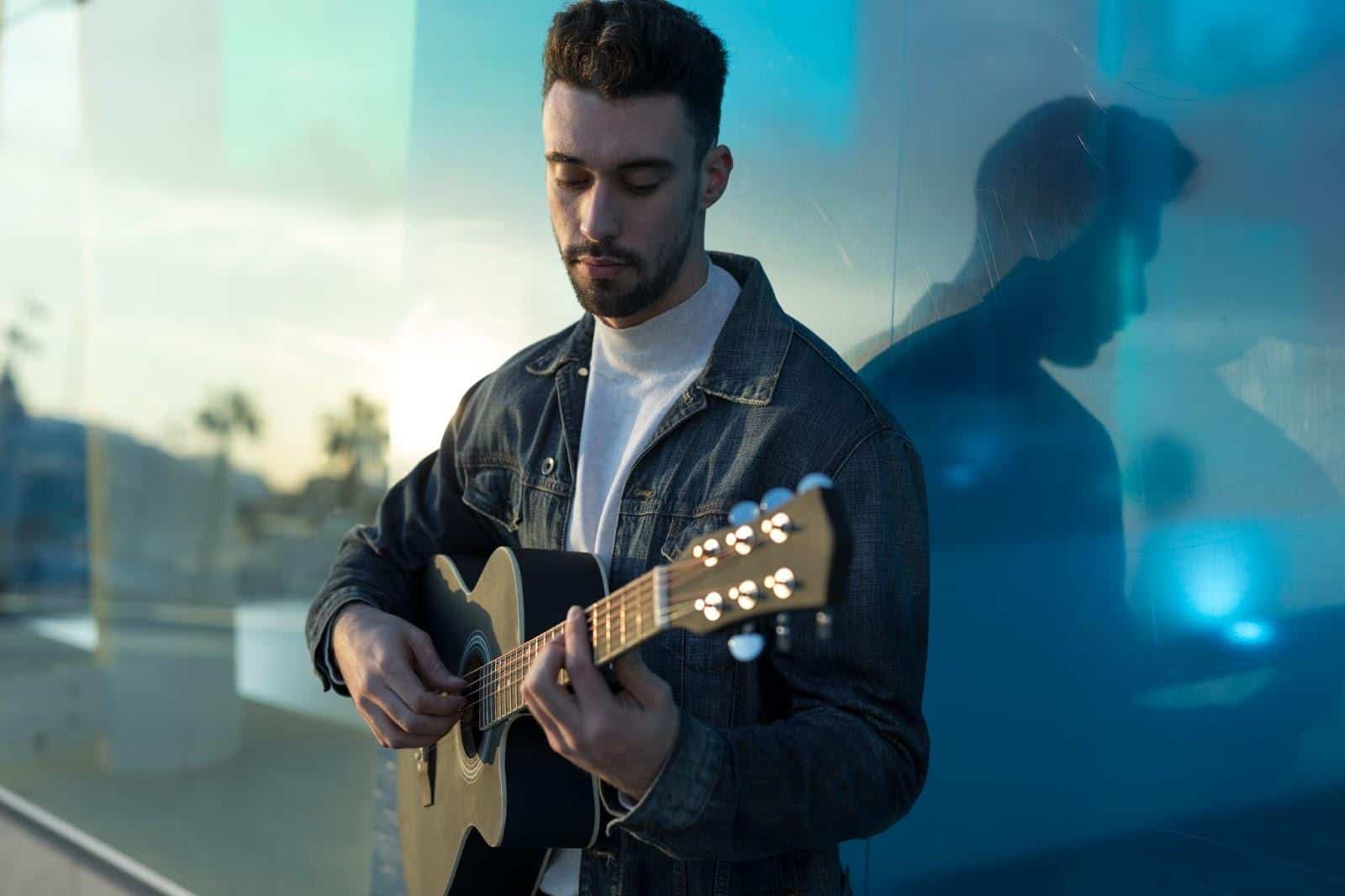Turning garage jam sessions into sold-out stadium shows is like every new band’s fantasy. But between writing songs and playing gigs, figuring out how to pay for stuff can harsh the rock and roll buzz. Scraping together cash to lay down tracks or go on tour can be a real pain for indie groups just starting.
This article examines how musicians can raise financial support to help their artistic visions. We’ll explore ideas ranging from local grants to big-time corporate sponsorships. No matter where you’re on the journey, there are many paths to getting the music funding you need to pursue your dreams. Some require hustle and luck, but the resources are out there if you dig.
Small Business Loans for Musicians
Small business loans for musicians are like a lifeline for talented folks looking to turn their passion for music into a sustainable music career. Musicians often have unique money challenges, from buying equipment to paying for studio time, marketing, and tour expenses. Since these challenges exist, some financial institutions, government programs, and private lenders offer small business loans made specially to help musicians.
One of the leading small business loan types for musicians is equipment financing. The medium-term for these expenses is usually $2,000. Plus, most artists may have credit issues and look for no credit pull options. Most lenders may provide them with a $2,000 loan with no credit check, which doesn’t affect their bad credit scores and makes it possible to get the needed amount without an extra guarantee.
Equipment financing loans give musicians money to buy or rent whatever gear they need to invest in developing their skills without draining their savings or taking on crazy debt. Usually, these loans have small and medium amounts available (up to $35,000 or more) and shorter repayment terms (up to 24 months).
Grants for Music Artists
Financial help for emerging musicians comes from many sources: government groups, foundations, companies, etc. The goals are to assist artists with making music, getting their work out there, and making a living. Grants can pay for everything from recordings to gear to tours to everyday costs.
Grants can significantly impact artists’ music careers by providing crucial financial backing to pursue creative endeavors, reach new audiences, and advance their artistic development. Receiving a music grant can validate emerging artists’ work and provide industry recognition. Established artists might use grants to experiment with new ideas, collaborate, or explore innovative musical approaches. Music grants can also assist artists to overcome financial barriers and focus more on art without worrying about commercial pressures.
There are grants for projects—maybe cutting an album or shooting a video—and some support residencies to work with mentors and meet other artists. Scholarships help pay for school and training. The National Endowment for the Arts and state arts agencies give federal grants, and states and cities do. Private donors and places like corporations that want to support the arts also offer money.
Applying for grants typically requires submitting a detailed proposal outlining the artist’s projects or artistic goals, budget, timeline, and potential impact. First, make sure you actually qualify for the grant before wasting your time. They usually have specific rules about details like your age, location, what kind of music you make, etc.
Once you’ve figured that out, pull together everything you’ll need for the application—your budget, bio, work samples, recommendation letters, you know, the usual suspects. You don’t want to be scrambling to get materials together at the last minute.
Now comes the hard part – writing an excellent proposal. You must convince them why your artistic vision deserves their cash. Spell out what you want to achieve and how it’ll impact your community and genre. The more compelling your case, the better chance you have.
When everything’s ready to rock, submit that application by the deadline the grant-givers set. Triple-check that you included all the stuff they require and that there are no typos or errors. Then cross your fingers! With a well-crafted ask, you can get that money to make musical magic. However, the competition can be fierce, and selection may involve peer review panels.
Private Investors
Private investors can be an excellent option for musicians trying to get money to fund their music projects. Traditionally, artists have had to get money from record labels, apply for grants that they probably won’t get, or beg fans for donations to pay for making music. But private investors give another choice. They will hand over a lump of cash if the musician gives them a cut of future earnings or ownership of their tunes.
This can be a good deal because investors might not be as possessive as record companies about controlling the creative process, and musicians can potentially negotiate to keep artistic freedom while still getting the resources for studio equipment, marketing, etc.
On top of the money, investors sometimes have proper industry hookups that wanna-be rockstars would kill for. They can open doors to distribution companies’ venues or introduce musicians to essential figures to help build their fanbase. They bring more than just dollars to the table; they can give guidance and connections to help a musician’s career blow up.
How to Find Music Investors?
Connecting with financial backers can be important for modern and classical musicians and groups hoping to pay for their artistic ventures – whether it’s recordings, concerts, or something else music-related. This advice might help point you toward some possible investors:
- Get out there and meet people in the industry. Go to music events and talks to connect with potential investors face-to-face.
- Get to know managers, producers, fellow artists, etc. They may know investors who’d want to help you out.
- Some websites, like AngelList or MusicXray, aim to connect artists with interested investors online. You could pitch your project on there.
- Consider crowdfunding. Platforms like Kickstarter let fans directly chip in to support your work financially. And it puts you on investors’ radar when they see you have a good fan base already.
- Look into music incubators and accelerators, too. They offer guidance, connections, and often some upfront music funding to help artists get off the ground. Their programs are meant to introduce you to potential investors.
- Find any venture capital firms focused specifically on the music industry. If your plans are solid, they may offer backing. But you’ll need to create a convincing pitch and complete a business plan first.
How to Make Money as an Independent Artist?
Making money as a freelance musician can be tricky, but with hard work, planning, and thinking outside the box, you can earn an income from your passion. Here are a few ideas:
Performing Live Gigs
One old-school way for artists to bring in cash is by playing shows. That means gigs at bars, festivals, weddings, parties, etc. You make money from entrance fees, selling merch at the venue, or occasionally from a performance stipend.
Selling Merch
Design and sell t-shirts, caps, posters, and other gear with your band’s emblem or graphics. It is a good extra income stream with free advertising.
Streaming/Downloads
Get your tunes on services like Spotify, Apple Music, and Amazon Music, as well as online shops like iTunes and Bandcamp. The payment per play or download is small but adds up over time, mainly if you have dedicated supporters.
Sync Licensing
Getting your music licensed for TV, movie ads, video games, etc., can be very lucrative. It’s a great fit if your sound works for the project. The key is staying determined, getting creative with your hustle, and diversifying your income sources. It’s possible to make a living as an indie musician if you work.
Making Money on YouTube
You can make money on YouTube by starting a channel and posting your music videos, behind-the-scenes footage, live shows, etc. Once you meet YouTube’s rules, you can run ads and sell channel memberships and merchandise.
Offering Private Lessons
If you’re skilled at an instrument or writing songs, consider offering private lessons, holding workshops, or teaching online classes. It’s fulfilling to share your knowledge and earn some extra cash.
Recording Popular Songs
In addition to letting people license your original tracks for movies, TV shows, and ads, you can also record popular songs and get paid when people stream or download your covers. Just make sure to get the proper legal permission first.
Creating an Artist Community
Team up with other musicians, producers, and artists on collaborative projects, and it can help more people discover you and lead to paid gigs featuring on other people’s tracks.
Bartering
Buddy up with brands, businesses, and influencers who vibe with your music/brand. It could lead to sponsorship deals, endorsements, or chances to perform at sponsored events.
Other Options to Choose
These days, getting signed to some huge record label seems less critical than it used to. With social media and sites like Spotify letting musicians reach tons of fans without a label’s help, more and more artists are trying to make it on their own rather than signing away their rights. It means they get to keep control of their music career.
The tricky part is having enough money to produce and promote your stuff when you need a label footing the bill. However, some new platforms offer cash advances like a record company would, with way better terms for the artists. These sites give you an advance to cover costs, but you keep 100% of sales and rights later. They don’t take any of your merch, publishing, touring money, or just streaming royalties.
Compared to a typical label deal, these advances let artists keep way more control and profit from their work. If you need funds to get your music out there but want to stay independent, it’s worth looking into these alternatives. They give you the budget without making you sign your life away.
Bottom Line
Turning garage bands into global music sensations ain’t as crazy as it sounds nowadays. With all the options for getting money to fund your music, such as artist grants, sponsorships, crowdfunding campaigns, and new online platforms – regular musicians can live the dream if they try hard enough. But getting the cash you need takes skills – you must plan things out, get creative, and keep pushing through the tough times. If you stay determined and find some good folks to support you, you can break down barriers and reach way bigger audiences than you ever imagined.
Seeing how funding keeps changing music for the better is incredible; the money doesn’t just help artists create. It’s building up a whole community where creativity can blossom as big as it wants. Let’s jump on these opportunities and ensure anyone who dreams of rocking the global stage someday gets their chance – whether they’re jamming in their garage now or selling out huge venues halfway around the world. It is possible if you want it bad enough. Even the most prominent names out there started small once upon a time.







